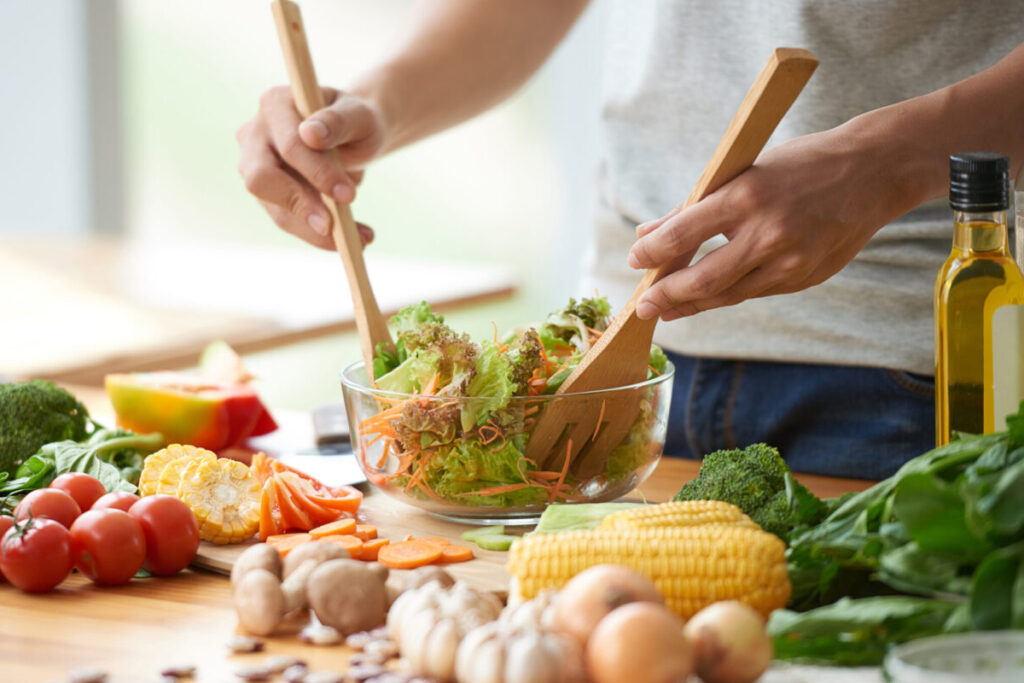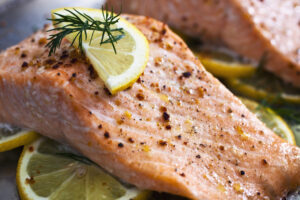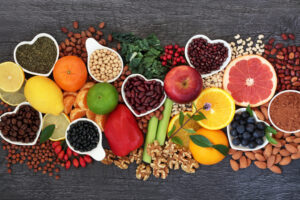Did you know you can reduce your risk of cancer by eating a nutritious diet? Although cancer prevention continues to be researched, we do know the chances of developing cancer are affected by lifestyle choices. Research shows that as many as one-third of all cancer deaths are linked to lifestyle behaviors including diet and physical activity. Besides quitting smoking and protecting your skin from damaging UV rays, some of the most important things you can do to help reduce your cancer risk are eating right and being physically active on a regular basis throughout life.
A June 2019 report from the American Institute for Cancer Research says, “We estimated that the diet-related factors may account for 80,110 of the new invasive cancer cases reported in 2015, or 5.2 percent of that year’s total among U.S. adults. The percent of the cancer burden attributable to poor diet is similar to the percent of cancer burden associated with alcohol, which is 4 to 6 percent. Excessive body weight, meanwhile, is associated with 7 to 8 percent of the cancer burden, and physical inactivity is associated with 2 to 3 percent.”
Beth Beckett and Mary Beth Peiffer, oncology dietitians at the Community Cancer Center, recommend eating foods such as fruits, vegetables, plant proteins, whole grains and whole foods for a well-rounded cancer prevention diet. Other options include eating less processed and low nutrient foods and moderating meat portions, especially processed meats hot dogs, sausage and bacon. Limiting alcohol consumption and maintaining a healthy weight are other key factors.
Good resources Scott shares are the American Institute for Cancer Research, American Cancer Society and National Cancer Institute. These organizations have outlined nutrition and exercise guidelines related to cancer prevention.
Just as there are lifestyle behaviors that can decrease the risk for cancer, there are also lifestyle behaviors known to increase the risk for cancer. Those to be avoided include:
- Cigarette smoking and tobacco use
- Infections (Human papillomavirus, hepatitis B and C, Epstein Barr virus, helicobacter pylori)
- Radiation (ultraviolet radiation from sunlight, ionizing radiation)
- Immunosuppressive medicines after organ transplants
Nutrition During and After Cancer Treatment
Food and nutrition are critical components of any successful cancer treatment. Nutrients support the growth of healthy cells in your body; they also go a long way toward helping you maintain energy and strength. Patients should avoid a highly restrictive diet during treatment. This is counterproductive to the struggle of maintaining your weight while dealing with the side effects of treatment.
Once cancer treatment is complete, maintaining a nutritious diet helps the body heal and offers protective effects for the future. A diet comprised mainly of fruits and vegetables, whole grains, beans, peas, lentils, nuts and plant-based fats is best for people with a history of cancer. Limiting refined grains, added sugars, red meat and alcohol offers additional protection.
This type of diet is also good for heart health and can help reduce risk of other chronic diseases. To learn more about how diet and nutrition can help reduce your risk, visit our nutrition page.






